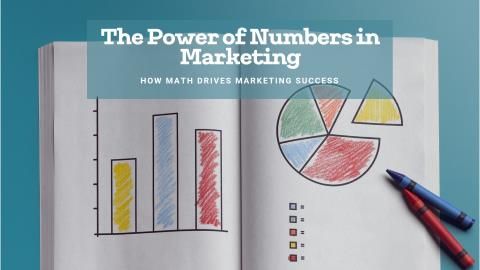Physical Address
304 North Cardinal St.
Dorchester Center, MA 02124
Physical Address
304 North Cardinal St.
Dorchester Center, MA 02124

Data-Driven Marketing: Numbers and data lie at the heart of effective marketing strategies. By leveraging mathematical models and data analytics, businesses can achieve higher ROI, improve customer engagement, and optimize marketing spend. Here’s how numbers can amplify your marketing efforts and drive impactful results.
Numbers empower marketers to understand trends and consumer behavior.
Tracking key metrics like Return on Investment (ROI), Customer Acquisition Cost (CAC), and conversion rates allows marketers to make data-backed decisions. Tools like regression analysis help predict future trends, enabling smarter choices.
Key Takeaways:
A/B testing relies on data, not guesswork.
Test different variations of ads, emails, or content and analyze the statistical significance to determine what resonates best with your audience. This iterative process helps marketers refine campaigns and boost performance.
Key Takeaways:
Mathematical models like cluster analysis can improve audience segmentation.
By grouping audiences based on demographics, interests, and past behavior, marketers can craft personalized campaigns that resonate with different audience segments. This targeted approach drives better engagement and conversions.
Key Takeaways:
Efficient budget management relies on mathematical techniques.
Methods like linear programming allow marketers to allocate their budgets effectively across various platforms, ensuring that every dollar spent contributes to the highest ROI. This ensures optimal spend across digital channels.
Key Takeaways:
Math helps in predicting future performance with precision.
Using time series analysis, marketers can forecast sales, leads, and other important metrics. This empowers businesses to plan more effectively, especially for seasonal campaigns or market shifts.
Key Takeaways:
Understanding algorithms behind platforms like Google and Meta is crucial.
These platforms use advanced algorithms to power ad placements. By understanding how these algorithms work, marketers can optimize their ad strategies, ensuring better performance and more efficient ad spend.
Key Takeaways:
Mathematics helps identify your most valuable customers.
By calculating Customer Lifetime Value (CLV), businesses can prioritize retention strategies for high-value clients, ensuring long-term growth and profitability. CLV helps to focus marketing efforts on the most lucrative customer segments.
Key Takeaways:
Pricing models are built on mathematical principles.
Incorporating demand elasticity and competitor pricing analysis helps businesses set the optimal price for their products or services. This ensures competitive pricing while maintaining profitability.
Key Takeaways:
Every step of the sales funnel can be optimized with data.
By identifying drop-off points, improving bounce rates, and refining on-site engagement, businesses can increase conversions. Using data to refine the customer journey leads to higher success rates in sales funnels.
Key Takeaways:
Numbers and KPIs should be easy to interpret.
Creating dashboards that showcase key performance indicators (KPIs) like impressions, clicks, and conversions helps teams and stakeholders understand performance at a glance. Visualizing success enables smarter decisions and faster responses.
Key Takeaways:
From optimizing ad spend to predicting future trends, numbers and data are the backbone of modern marketing strategies. With the right tools and mathematical models, marketers can unlock their full growth potential and create more effective, targeted campaigns.
By embracing data-driven insights, smarter A/B testing, and precision targeting, businesses can take their marketing efforts to the next level.
What strategies are you currently using to drive your marketing success? Let’s connect and explore how data can fuel your growth!